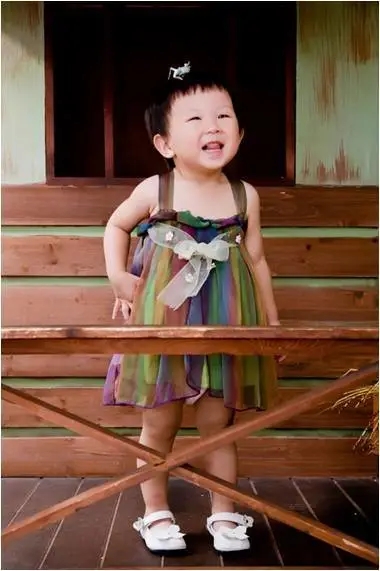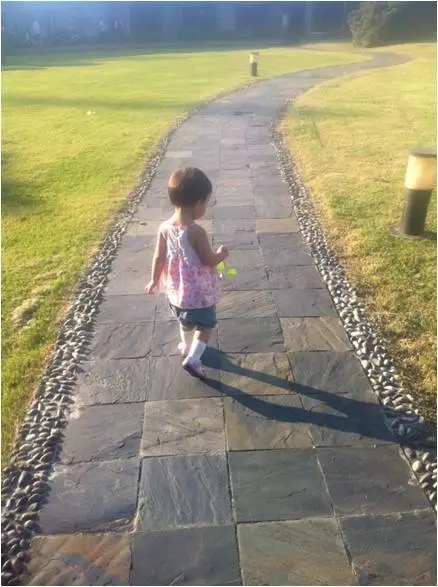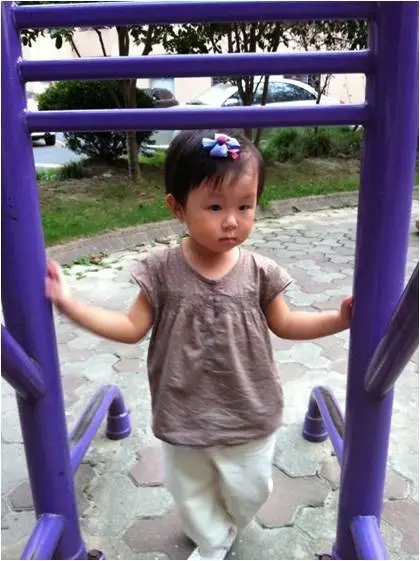这是 达医晓护 的第 2536 篇文章
上一篇我们介绍了宝宝从12月龄到15月龄各阶段发育的科普。本次的主题是接着一起来看看15到18月龄的正常发育轨迹,如何促进宝宝的发育,以及在什么情况下需要引起重视去看医生。
 行为发育
行为发育
在这个年龄, 宝宝对周围的一切都很好奇,热衷于探索这个未知的世界,玩游戏和探究实验。
游戏对宝宝的发育很重要——通过游戏宝宝可以开发自己的思维能力、想象力和创造力。宝宝可能会特别喜欢的游戏会有,比如找出来之前藏起来的玩具,根据大人的指令去指出身体各个部位。宝宝在18个月龄的时候,他可能会开始玩过家家,——例如,他可能会假装用杯子喝饮料,或者用玩具假装打电话。另外,在这个年龄,宝宝虽然会喜欢和其他孩子同时游戏,但更多的是在游戏过程中各自玩各自的,而不是玩在一起。
情感
在情感发育方面,宝宝已经对她所爱的人产生了强烈的依恋。你会发现这个小宝宝现在开始会给你很多拥抱和亲吻。但同时,当宝宝意识到有其他人正在看着她时,她可能会开始发展自我意识,甚至会感到不自在或尴尬。如果她和你分开了,她可能会心烦意乱——分离焦虑是这个年龄阶段发育的一个典型部分。
语言交流
在语言发展方面,宝宝在15个月的时候可能已经会说会几个单词。在接下来的几个月里,他将学习越来越多的单词,并可能会开始学会命名物品和动作。从听到自己名字会有反应到理解自己的名字是什么,并懂得一些简单的命令,比如“把它拿给妈妈”。宝宝甚至还可能学会了“不”和“我的”这样的字!
运动发育
这个年龄阶段的宝宝可能已经能独自走路了。如果还没有,那在接下来的几个月里应该会迈出他的第一步。如果已经学会走路有一段时间了,他可能很快就会开始跑,抱着楼梯扶手或你的手开始上下楼梯,或者爬家具。
手部的精细运动, 比如涂鸦、翻书,使用勺子、从杯子里喝水或搭几块积木这样的操作, 对宝宝来说是越来越驾轻就熟了。
 在15-18个月这个年龄阶段,宝宝可能还会:
在15-18个月这个年龄阶段,宝宝可能还会:
自己脱掉她的一些衣服
自己坐在一张小椅子上,或者试着坐到你的椅子上
按照你的指令到另一个房间拿东西
用手指捡起非常小的物体,例如小石子或碎屑。
 如何促进15到18月龄宝宝发育?
如何促进15到18月龄宝宝发育?
1. 陪伴是最长情的告白:当宝宝在玩耍和探索新事物时,爸爸妈妈呆在边上陪着可以帮助孩子更有信心自己尝试新事物。这对于孩子长大后能变得独立和自信有益。
2. 鼓励社会性游戏:与他人一起玩耍是孩子交朋友和学习如何与其他孩子相处的好方法。但现在这个阶段他们还没学会分享玩具和轮流玩。
3.鼓励宝宝学习日常生活技能:生活中可以教并鼓励孩子使用勺子、从杯子里喝水和摘掉帽子等日常技能。这些技能的运用会锻炼到一系列大小肌群的的运动以及协调性,以及同时思考自己正在做什么的能力。
4. 陪宝宝交谈:和她说话时告诉她日常生活中事物的名称——比如身体各个部位、玩具和家庭生活用品,如勺子或椅子,这样可以培养孩子的语言能力。在这个年龄,你可以教逐步地教你的孩子,比如一个“苹果”可以是一个“大苹果”、“红苹果”甚至是一个“大红苹果”。
5. 当孩子和你说话时,通过倾听和回答,让孩子觉得说话有意义。例如,你可以模仿你的孩子说的话——如果他说“爸爸”,你就说“是的,爸爸在这里”。这样就鼓励了双向对话,帮助孩子培养沟通能力, 同时也会让他感到被重视和被疼爱。
6. 陪宝宝一起阅读:和孩子一起阅读、讲故事、唱歌和背诵童谣,可以鼓励孩子说话和培养他的想象力。
7. 鼓励宝宝运动:运动帮助孩子增强肌肉力量,这对以后掌握更复杂的运动,比如走路和跑步来说很重要。注意要有安全的居家环境可以让孩子积极运动的同时不会受伤。
在什么情况下需要引起重视去看医生
如果观察到15-18月龄的宝宝有下述情况之一的,需要带孩子去看医生进一步评估。
视觉,听觉,和交流
看东西或听东西有困难
doesn’t say any single words
还不会说一个字
不会遵循简单的指令-例如,“请把球给我”
不会指物、挥手或使用其他手势
行为
孩子和你没有眼神交流
运动发育
不会行走
使用一侧的手而另一侧手不动或少动 (通常婴幼儿在2岁前应该不会使用一侧的手多于另一侧)
Behavior
Your toddler is curious about everything and is keen to play, experiment and explore.
Play is important for your child – it’s how she develops thinking, imagination and creativity. Your toddler might particularly enjoy games like finding hidden toys and pointing to body parts or familiar toys when you ask her to. By the time your toddler is 18 months, he might start to do ‘pretend play’ – for example, he might pretend to drink from a cup or talk on the phone using a toy. At this age, it’s more likely that your toddler will play side by side with other children rather than with them.
Feelings
When it comes to emotions, your child has developed strong attachments to the people she loves. You’ll find your toddler gives you lots of cuddles and kisses. But she might also be very aware of herself and even embarrassed when she realises other people are looking at her. If she’s separated from you, she might get upset – separation anxiety is a typical part of development at this age.
Talking
In language development, your child might say a few words by 15 months. He’ll learn more and more words in the coming months and might start naming objects and actions. Your child is starting to understand her own name, and simple commands like ‘Bring it to Mum’. She might also learn the power of words like ‘no’ and ‘mine’!
Movement
Your toddler might already be walking on his own. If not, he’ll probably take his first steps during the next few months. If your toddler has been walking for a while, he might soon start running, walking up or down stairs holding the bannister or your hand, or climbing furniture.
Hand movements like scribbling, turning pages in a book, using a spoon, drinking from a cup or building a tower of blocks are much easier for your toddler now.
At this age, your child might also:
•take off some of her clothes
•seat herself in a small chair, or try to get into your chair
•get something from another room when you ask her to
•pick up very small objects – for example, pebbles or crumbs.
Helping toddler development at 15-18 months
1. Be there for your toddler: being nearby while your toddler plays and explores gives your child the confidence to try new things on his own. This can help him to be independent and self-confident when he’s older.
2. Encourage social play: playing with others is a great way for your child to make friends and learn how to be with other children. But don’t expect sharing and taking turns just yet.
3. Encourage your toddler to practise everyday skills like using a spoon, drinking from a cup and taking off a hat. These skills involve both small and big muscle movements, as well as your toddler’s ability to think about what she’s doing.
4. Talk with your toddler: naming and talking about everyday things – body parts, toys and household items like spoons or chairs – helps develop your child’s language skills. At this age, you can teach your child that an ‘apple’ can be a ‘big apple’, ‘red apple’ or even a ‘big red apple’.
5. Give meaning to your child’s talking by listening and talking back to him. For example, you can copy what your child says – if he says ‘dada’, you say ‘Yes, dada is here’. This encourages two-way conversation and helps your child build communication skills. It also makes him feel valued and loved.
6. Read with your toddler: you can encourage your child’s talking and imagination by reading together, telling stories, singing songs and reciting nursery rhymes.
7. Encourage moving: this helps your child build muscle strength, which is important for more complex movements like walking and running. Making your home safe can help your active toddler move about without getting hurt.
When to be concerned about toddler development
See your child’s pediatrician if you have any concerns or notice that at 15-18 months your toddler has any of the following issues.
Seeing, hearing and communicating
•has trouble seeing or hearing things
•doesn’t say any single words
•doesn’t follow simple instructions – for example, ‘Please give me the ball’
•doesn’t point, wave or use other gestures.
Behavior
Your child doesn’t enjoy eye contact or cuddles with you.
Movements and motor skills
•isn’t walking by himself
•uses one hand a lot more than the other (usually children don’t use one hand more than the other until closer to two years).
作者:澳大利亚墨尔本大学医学院儿科博士
百汇医疗(中国)儿科医师
蒋本然




 扫码下载APP
扫码下载APP

 科普中国APP
科普中国APP
 科普中国
科普中国
 科普中国
科普中国